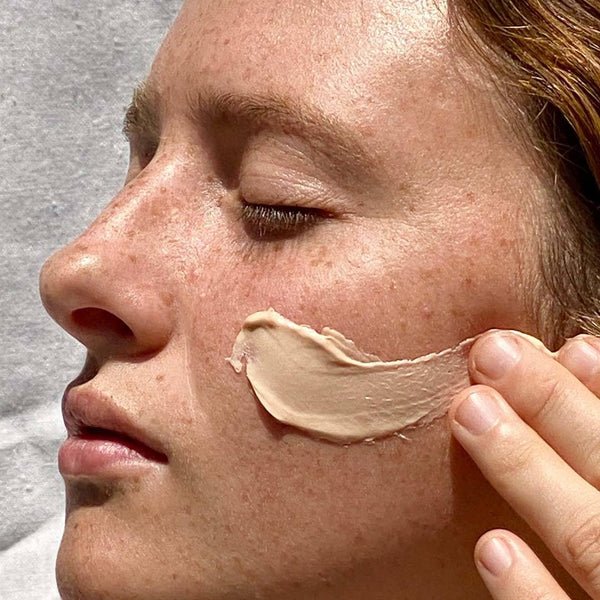
What Is A Holistic Doctor & Should You See One?
A Mind, Body, & Spirit Approach To Healthcare
A common complaint among many of my friends about going to the doctor is that they just end up being sent to more doctors. A general practitioner refers them to a specialist who refers them to another specialist and on and on.
Looking to end this cycle and find care that considers their body and lifestyle as a whole, an increasing number of people are turning to holistic healthcare, also known as integrative or complementary medicine. In fact, nearly 40 percent of adults in the United States are seeking out alternative medicine. Rather than addressing a singular symptom, holistic doctors focus on preventative care, looking at a patient’s mind, body, and spirit to get at the root cause of an issue.
“Holistic doctors focus on preventative care, looking at a patient’s mind, body, and spirit to get at the root cause of an issue.”
But while this is a more recent practice in the West, people around the globe have been using holistic treatments for centuries. Ayurveda, for example, is “a natural system of medicine” that originated in India more than 3,000 years ago. Chinese medicine, which includes acupuncture and focuses on “restoring and maintaining harmony throughout the body, and understanding the body as an integrated whole,” has also been around for thousands of years.
Since Congress established the Office of Alternative Medicine in the early ‘90s, only more recently has holistic healthcare grown in the United States, with more and more patients now seeking it to complement their western medicine practices.
What Is Holistic Healthcare?
According to the Academy of Integrative Health & Medicine, integrative health and medicine “reaffirms the importance of the relationship between practitioner and patient, focuses on the whole person, is informed by evidence, and makes use of all appropriate therapeutic approaches, healthcare professionals, and professions to achieve optimal health and healing.” This evidence-based approach can manifest itself in many different forms of care, such as nutritional counseling or yoga, but the underlying principle is the health outcome.
“Those looking for a completely natural approach to healthcare may want to investigate Ayurveda.”
In addition to the many forms this type of care can take, there are also a variety of practitioners. There are traditional MDs that work in the holistic healthcare arena, as well as doctors of osteopathic medicine (DOs), integrative physicians, Ayurvedic doctors, and naturopathic doctors, among others. Patients looking for treatments that integrate “traditional” medical practices with alternative therapies might be best served by DOs or integrative physicians. Those looking for a completely natural approach to healthcare may want to investigate Ayurveda.
One main difference between these practitioners is the degree of formal training. For example, an Ayurvedic doctor completes training at an Ayurvedic school recognized by the National Ayurvedic Medical Association. But they are not licensed in any state as medical doctors, and no formal nationwide certificate exists.
Naturopathic doctors, however, attend naturopathic medical schools and must pass professional board exams to attain a license. Though certain states also have state-specific regulatory practices, this is moderated on a federal level by the Federation of Naturopathic Medicine Regulatory Authorities. Each type of doctor can be helpful depending on what treatment you are seeking, but it is always important to verify their credentials on a state government’s website by searching the site’s licensing page.
There are also more specialized services within these practices, such as holistic gynecologists and dermatologists. Dr. Anita Sadaty, a holistic gynecologist based in Roslyn, New York, provides individual care to women looking for an integrative approach.
“After 15 years in practice, I realized that my toolbox of mainly pharmaceutical drugs and birth control pills wasn’t necessarily fixing the problems patients were experiencing,” she explains. Her approach to healthcare now is to meet patients where they are.
“Alternative approaches offered by holistic doctors can be anything from dietary changes to recommendations for massages and acupuncture.”
“Many times patients want a quick fix, ‘pill for an ill’ approach,” she says. “I respect that choice if that’s what they feel is best for them. I will try to offer other options by asking some basic lifestyle and nutrition questions. If they are open to these approaches, then I will make suggestions that might be helpful for them.”
Alternative approaches offered by holistic doctors can be anything from dietary changes to recommendations for massages and acupuncture. If a patient is suffering from a lack of sleep or high anxiety, Dr. Sadaty might suggest eliminating caffeine and alcohol for a period of time to see if these symptoms change.
On the whole, her patients find their way to holistic medicine because they aren’t responding to traditional methods. They “like that I think out of the box and individualize their therapies instead of resorting to cookie-cutter, one-size-fits-all approaches,” she says.
This individualized approach is at the core of holistic care. “Health means something different to everybody,” explains Dr. Chiti Parikh in an introductory video for the Integrative Health and Wellbeing program at New York Presbyterian, of which Dr. Parikh is the Executive Director. “That’s a conversation we want to initiate and continue to engage in.”
The integrative program at New York Presbyterian, conducted in collaboration with Weill Cornell Medicine, is a nod to holistic medicine’s continued rise. With large hospitals and big names in healthcare opening up integrative centers, whole-body approaches to medicine are becoming more legitimized.
“With large hospitals and big names in healthcare opening up integrative centers, whole-body approaches to medicine are becoming more legitimized.”
Unfortunately, coverage of holistic healthcare is spotty at best in the United States, and Americans spend over $30 billion each year on out-of-pocket complementary and alternative medicine and treatment. More insurers are beginning to recognize the demand though, and a 2011 survey of 18 major insurance companies revealed that 14 providers covered several alternative therapies so far.
Still, it’s best to check with your provider to ensure your treatment is covered or if you need to pay out-of-pocket, ask about the cost of services before proceeding. And also, consult your doctor and verify the qualifications of any healthcare provider you seek treatment from, as some medical conditions may not be treatable with alternative therapies alone.
While holistic medicine can be transformative for many patients, many find it is best used to complement a regular medical practice.
Looking to explore more about holistic health? Resources and additional information can be found through:
Emilie Murphy is a freelance writer and communications manager based in Brooklyn, NY. She has written for The Observer, Brooklyn Magazine, Dance Magazine and The Toronto Star, among others. Follow her adventures on Instagram @artforrealpeople.




